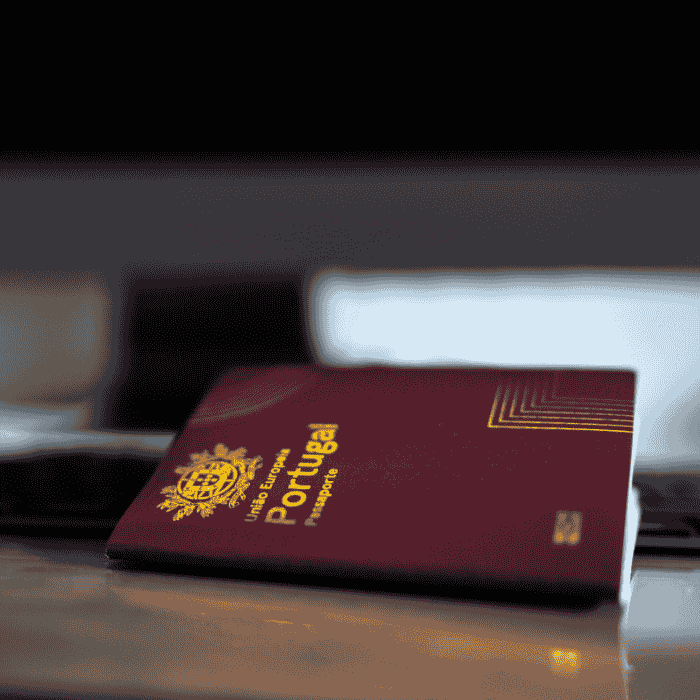Introduction
Portugal offers multiple pathways to legal residency and, ultimately, citizenship. Two of the most popular routes are the D7 Visa, designed for applicants with stable passive income, and the Golden Visa, intended for investors who commit significant capital to the Portuguese economy. Understanding the key differences, requirements, and benefits of each program is crucial to choosing the right visa for your circumstances.
What Is the D7 Visa?
The D7 Visa, often called the “Passive Income Visa,” targets retirees, remote workers, and others with reliable income streams from abroad.
- Income Requirement: You must demonstrate passive income at least equal to Portugal’s monthly minimum wage (€870 as of 2025). This means showing a bank balance of at least €10,440 (12 × €870) for the main applicant. For a spouse, add 50% of that amount, and for each child under 18, add 30%.
- Eligible Income Sources: Pensions, rental income, dividends, royalties, and capital gains.
- Accommodation Proof: A 12‑month rental agreement or property deed.
- Other Essentials:
- Portuguese Tax Identification Number (NIF) and a local bank account
- Clean criminal record certificates from all countries where you’ve lived
- Valid health or travel insurance covering at least your first year in Portugal
- Stay Requirement: You must not be absent from Portugal for more than six consecutive months or eight months total during the first two‑year permit.
- Validity & Path to Citizenship: The initial permit is valid for two years and can be renewed once for three more years. After five years of legal residency, you may apply for permanent residency or Portuguese citizenship.
What Is the Golden Visa?
The Golden Visa grants residency permits to non‑EU investors who make qualifying investments in Portugal.
- Investment Options:
- Transfer capital to approved funds with a minimum of €500,000 (at least 60% invested in Portuguese companies)
- Support cultural or scientific projects with at least €250,000
- Create at least 10 full‑time jobs in Portugal
- Associated Fees:
- Application fee of €605 per applicant
- Residence permit card fee of €6,045 per applicant
- Legal fees, typically ranging from €5,000 to €8,000
- Stay Requirement: Only 7 days in total over the first year, and 14 days every subsequent two‑year period.
- Processing Time: Expect 18 to 36 months for initial approval due to high application volumes.
- Validity & Path to Citizenship: The permit is valid for one year initially, then renewable twice for two‑year periods. After five years, you can apply for permanent residency or citizenship.
Key Differences at a Glance
| Feature | D7 Visa | Golden Visa |
|---|---|---|
| Minimum Investment | None | €250,000 – €500,000+ |
| Income Requirement | €870/month passive income | None |
| Stay Requirement | ≥ 6 months per 2‑year period | 7 days first year; 14 days every 2 years |
| Processing Time | ~3–6 months | 18–36 months |
| Family Inclusion | Spouse & dependents under adjusted income ratios | Yes, same investment per person |
| Path to Citizenship | 5 years | 5 years |
| Tax Residency | Must establish tax residency | No tax residency requirement |
| Cost | Low (application & living costs) | High (investment + fees) |
Detailed Requirements Comparison
Financial Thresholds
- D7 Visa:
- Main applicant: €10,440 in the bank (12 × €870).
- Spouse: +€5,220; each child: +€3,132.
- Golden Visa:
- Fund investment: ≥ €500,000.
- Cultural/scientific support: ≥ €250,000.
- Job creation: ≥ 10 full‑time positions.
Documentation Essentials
- Valid Passport
- Clean Criminal Record Certificate
- For D7: Proof of passive income, proof of accommodation, health insurance
- For Golden Visa: Proof of qualifying investment, suggested health coverage
Pros and Cons
D7 Visa
- Pros:
- Lower cost; no lump‑sum investment required
- Faster processing timeline
- Full‑time residency supports deeper local integration
- Cons:
- Must meet continuous passive income thresholds
- Stricter residency requirements to maintain permit
Golden Visa
- Pros:
- Minimal physical presence needed
- No income requirement or minimum stay for tax residency
- Visa grants access to Schengen travel without extra paperwork
- Cons:
- Significant capital outlay required
- Longer approval periods
Application Process & Timeline
- Preparation (1–2 months):
- Gather and translate documents, open a Portuguese bank account, obtain NIF.
- Submission:
- D7: Submit application via Portuguese consulate or online portal.
- Golden Visa: Apply through the official ARI (Golden Visa) portal with investment proof.
- Biometric Appointment:
- Required for both programs; scheduled by the authorities.
- Approval & Card Issuance:
- D7: Approximately 3–6 months.
- Golden Visa: Typically 18–36 months.
- Renewal & Citizenship:
- Follow the specific renewal cycle for each visa; apply for citizenship after five years of legal residency.
Which Visa Is Right for You?
- Choose the D7 Visa if:
- You have reliable passive income and plan to live in Portugal long‑term.
- You seek a cost‑effective, faster route to residency and citizenship.
- Choose the Golden Visa if:
- You have significant capital for investment and desire minimal stay obligations.
- You prioritize easy travel within the Schengen Area without tax‑residency commitments.
Frequently Asked Questions
- Can I switch from Golden Visa to D7 Visa?
Yes. Holders of a Golden Visa can apply for a D7 Visa if they meet the income requirements. - Do I need a Portuguese address for the Golden Visa?
Not unless you invest in Portuguese real estate. - Is family inclusion automatic?
- D7: Spouse and dependents qualify under adjusted income ratios.
- Golden Visa: Each family member must meet investment and documentation requirements.
- Can I work in Portugal under these visas?
- D7: Yes, once tax residency is established.
- Golden Visa: Yes, though you must maintain your qualifying investment.
- Are there age limits?
No, neither program imposes age restrictions.
Conclusion
Both the D7 and Golden Visa programs offer viable pathways to Portuguese residency and EU citizenship. Your choice depends on your financial resources, lifestyle preferences, and long‑term goals. Carefully review the requirements, costs, and stay obligations to select the visa that aligns best with your personal and professional plans.




